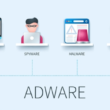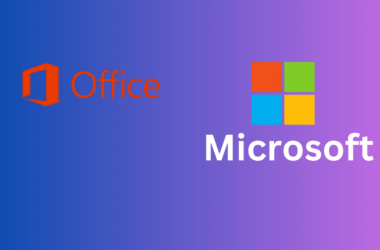Phishing is a hidden threat that exists in the broad world of online, where connectivity is essential to the digital era. This sophisticated form of cyber attack, fueled by social engineering, preys on human vulnerability, aiming to extract valuable credentials from unsuspecting individuals. The repercussions of such attacks extend far beyond the initial compromise, as stolen credentials become commodities in a shadowy marketplace known as the dark web.
Unraveling the Art of Phishing
The Psychology of Deception
Phishing is an art form for hackers, a psychological game that exploits trust and urgency. The primary tool in their arsenal is the deceptive email. Crafted to mimic communication from trustworthy sources such as banks, social media platforms, or colleagues, these emails often carry urgent messages that play on the recipient’s fear or curiosity, compelling them to act hastily.
Spoofed Websites and Malicious Payloads
Once the email has served its purpose, it often directs the victim to a meticulously crafted, yet fraudulent website. This impersonation of legitimate sites is designed to deceive users into entering their login credentials willingly. Additionally, embedded links or attachments within these phishing emails may lead to the installation of malware, allowing attackers to capture keystrokes and escalate their intrusion.
Impersonation Tactics
Beyond the digital realm, some phishing attacks involve a personal touch. Hackers may pose as coworkers, managers, or IT specialists and use people’s confidence to trick them into disclosing private information.
The Dark Web: Where Stolen Credentials Find a Market
Monetary Transactions and Pricing Strategies
Credentials that have been successfully obtained are a valuable commodity on the dark web, not merely a trophy for hackers. The worth of stolen usernames and passwords is listed for sale, and it is based on many aspects including the influence of related social media profiles or the financial assets connected to the accounts. A tier-based market for illegal information is created by the increased prices demanded by high-profile accounts.
Bulk Sales and Rapid Turnover
Bulk sales are a common choice among hackers in the vibrant dark web industry. These packages are sold or auctioned to the highest bidder and contain many accounts and passwords. Cybercriminals can fast profit from their illicit earnings thanks to this strategy.
Facilitating Other Crimes
Beyond the immediate cash benefit, a variety of illicit acts can be accessed using credentials that have been stolen. Using the personal data that is taken from gullible people makes identity theft, fraud, and even corporate espionage possible.

Defense Strategies: Guarding Against the Phishing Tide
Education and Awareness
An informed user base is the first line of defence against phishing. To make sure people recognize the warning signals of phishing efforts and are aware of the possible implications of falling victim to these attacks, it is imperative that education and awareness campaigns be conducted on a regular basis.
Email Filtering Solutions
In order to prevent questionable emails from reaching users’ inboxes, advanced email filtering technologies operate as gatekeepers, recognizing and holding onto them. These instruments play a crucial role in blocking phishing attacks before they start.
Multi-Factor Authentication (MFA)
Multi-factor authentication adds another line of protection in the event that credentials are stolen. A hacker would still require a second form of authentication to access an account, even if they had the login credentials.
Security Training Programs
Users must attend regular security training sessions to stay up to date on the latest phishing strategies. Sustaining a strong cybersecurity posture requires knowing how to spot and report unusual activities.
Regular Updates and Patching
Updating operating systems, security apps, and software is essential to sealing possible holes. Frequent patching and upgrades reduce the possibility that an attacker looking for a way into a system may exploit it.
Conclusion: Fortifying the Digital Frontier
The fight against phishing is a never-ending one that calls for a diversified strategy that include both user education and technology defences. Through comprehension of the subtleties of phishing assaults, people and institutions may strengthen their defences against these sneaky dangers. The strength of our defences will decide our capacity to repel the unrelenting flood of cybercrime and safeguard the integrity of our online identities as we traverse the ever-expanding digital frontier.










